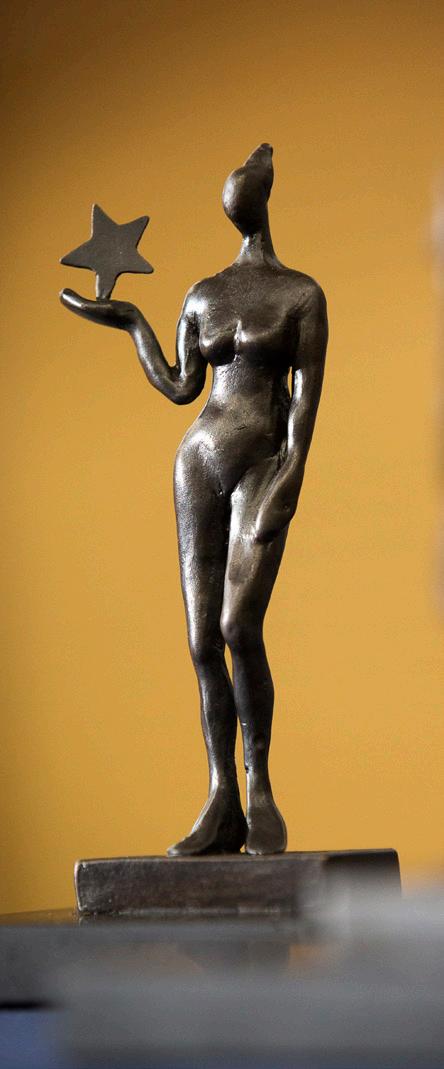
2 minute read
FOR SUFFERERS OF RARE CONDITION New hope
Dio alumna Distinguished
Professor Dame Margaret Brimble (Macmillan, 1978) has had another huge success in her pioneering clinical research work.
In 2002, Margaret and her team of biologists at the University of Auckland created a molecule that could now help improve the lives of the one in 10,000 girls affected by Rett syndrome. This rare neurological disorder affects girls almost exclusively. It causes symptoms similar to autism or cerebral palsy, leading to a loss of communication skills and motor control.
Baby girls with Rett syndrome lose their motor and cognitive function at around 18 months old. Many require 24-hour care and their life expectancy can be reduced to around 30 years. Up until now there was no way to treat the condition.
“Twenty years ago, we made a molecule that we called NNZ2566 that the World Health Organization then called trofinetide,” says Margaret. “It was developed for traumatic brain injury, but was trialled in Rett syndrome.”
While trofinetide was never used to treat brain injuries, clinical trials began in 2012 for Rett syndrome. The phase three trial showed improved verbal, cognitive and motor skills in trial participants.
In March this year, the FDA granted approval for trofinetide, marketed as Daybue™. It’s the first drug given the goahead to treat Rett syndrome and could help reverse some of its symptoms.
In children with the syndrome, mutations in a gene called MECP2 prevent a molecule that’s essential to cognitive and motor function from forming. Trofinetide is a synthetic version of that molecule.
A few days before receiving FDA approval, Dame Margaret appeared on TVNZ’s Seven Sharp to talk about the impact of this development.
“This is huge. You work your whole life as a medicinal chemist thinking one day you might make a drug that could go into human clinical trials. That’s big enough, but to actually have it go through clinical trials, right through phase one, phase two, phase three and being on the brink of approval to be used in patients is huge. I never dreamed this would ever happen.”
The drug is now available commercially in the United States, and the hope is that early treatment when a young child is first diagnosed might see reversal of the syndrome.
“I’m over the moon for all of the families who need the drug,” says Margaret. “It’s a horrible disease, and finally there’s a treatment. We’ve waited so long for this.”
Dame Margaret is Director of Medicinal Chemistry at Waipapa Taumata Rau, University of Auckland. In 2019, she was made a Dame Companion of the New Zealand Order of Merit in 2019 for her services to science and her contributions to research in medicinal chemistry.
She and her team are working on another promising neurological drug called NNZ2591. It has FDA approval to enter phase two clinical trials for the treatment of Phelan-McDermid syndrome, Angelman syndrome, Pitt-Hopkins syndrome and Prader-Willi syndrome.

In 1954, Dio alumna Pat Hope (Toomey) began writing to her French penfriend, Marie Jeanne Poux (known as Mijane). As 13-year-olds, they had no idea their correspondence would lead to a lifelong friendship that’s still going strong 70 years later.


Pat and Mijane’s introduction came about purely by chance. During a trip to France, Pat’s French teacher, Miss Marjorie Daniel, visited the Parisian high school Lycée Camille Sée. While there, she set up a penfriend exchange between Mijane’s English class and her own Diocesan French class. Gushing about her homeland, Miss Daniel suggested the students write to a girl in New Zealand, and sent this parcel of letters home to Auckland. Pat’s excellent written reply earned her the privilege of selecting which French student would be her pen pal. She chose Mijane.
“The idea was that I would write in French and she would write in English,” explains Pat. “But her English is










